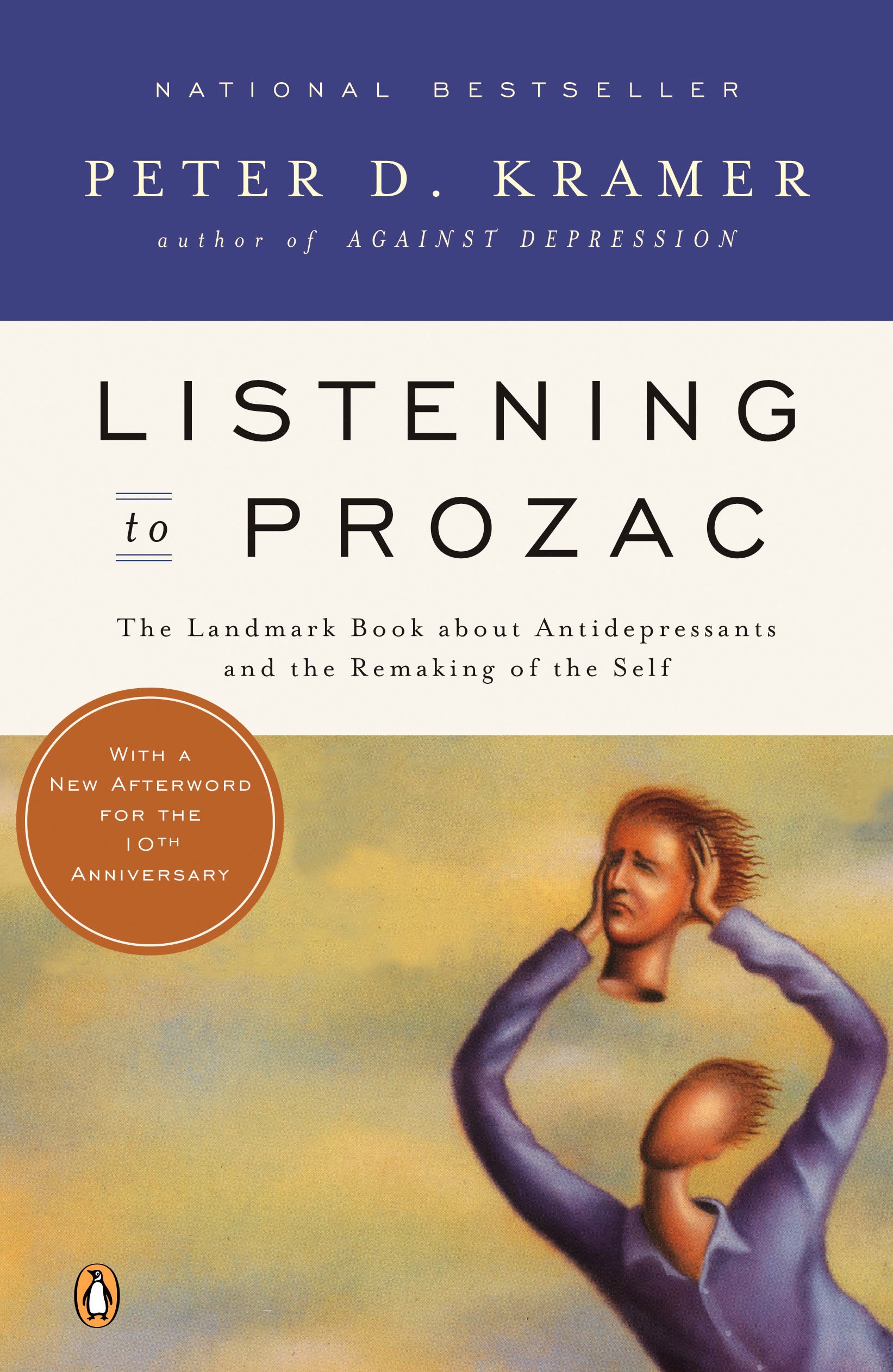A mind of our own
Antidepressants have worked for me and millions of others but are we the same people we were before?

Like a lot of inconveniences, it starts with a phone call. Inevitably a phone call that comes 40 minutes later than it was meant to. The man said he was going to prescribe me a course of sertraline to counteract the displacement of serotonin in my brain. Sadly, I've come to learn that it may not be quite as simple as this.
Over two years later in a conversation with Joanna Moncrieff, professor of Critical and Social Psychiatry at University College London, I was told that there are more and more damaging questions being raised around sertraline, or zoloft as it's known in the US, as well as other antidepressants.
Selective Serotonin Re-uptake Inhibitors (SSRIs) like sertraline, enjoyed a level of success that has remained constant for the last 30 years while the costs have generally fallen. In fact sertraline items dispensed per 1000 people more than doubled from 2011 to 2016.

It was November 2020 when I received my phone call and I was standing on the cobbles with no shoes on. (Bad phone signal prompted me to take the phone call outside.) I explained my situation.
It's hard to say where symptoms begin, or indeed end. Covid left young people like me at a complete loss during one of the most fragile periods of our lives. Only a month into the first lockdown 44% of 18-24 year-olds told the Mental Health Foundation they felt lonely, for example. But to say exactly when depression could be said to take hold of me, who can really say?
But the moment when the pills started to do their thing was very clear. The nausea, the inability to get an erection, the 'numbness', and the incomprehensible banishment of grapefruit from my diet. These are all par of the course of these little helpers and integral to becoming a member of the medicated.
But the act of taking these meds and what that meant for me in terms of a change in my personality is what I want to consider. I consider the medication to have worked for me, though at great cost to other parts of my life. Can I accurately consider myself the same person? What has this medication done to my sense of self?
Until you consider the chemical aftershock of these pills, it all seems harmless, if not quite effective. But my concern was well founded and shared by many.
Many patients in the UK fear the effects of taking antidepressants on their sense of self. Back in 2011 a study in the British Journal of General Practice found that 'concerns about the way that antidepressants challenge the patient's sense of self' unnerved many patients from the outset.
My fears were no different. As one close friend who is in the same situation said: “It's like the ship of Theseus.” That is, the ship that has its entire body replaced one plank at a time over the years. Philosophers then sought to answer the question of whether it was still the ship it was before.
After one dose sertraline, am I the same person? Probably. What about a thousand doses?
To put it another way, drink and drugs are momentary lapses in a much broader story of someone’s character and the body will soon reject these substances. But taking antidepressants, I worried, posed a risk of change that was more permanent and subsequently more sinister.
The fundamental question is this: Are the eight million identified UK patients receiving antidepressants the same people they thought they were before?
Fiona Stevenson, professor of Medical Sociology at University College London, stated a distinction has to be made. There is a difference between a drug affecting how your brain works and a drug transforming how you perceive yourself in day-to-day life.
For me it was the latter. The almost symbolic act of taking medicine was new and the ritual of taking your contraceptive pill or antipsychotics is something I will never understand.
But as you sleep, work and think, it’s hard to accept that these chemicals are doing their work on you.
As odd as it may sound, one notion of selfhood comes to mind: you are an ill person. You must be. You collect the medication, do as the professional tells you, endure the side effects and allow the prescription to solve the problem.
For the next few years am I a recovering ill person? It's not a nice thought, nor is it a new one. The 'unnatural' idea of antidepressants interfering with my thoughts and behaviour unsettled me and many others.
But how could I have been a different person? The world kept turning and I kept making decisions that felt authentically Peter-ish.
Total number of SSRI medications prescribed in the UK 2015-2019.
Number of identified patients receiving antidepressants in the UK.
Fredrik Svenaeus, professor of philosophy at Södertörn University, said mood modifying medicines are like an 'altered embodiment,' an 'estranged engagement with the world' that is different from what we are used to.
Our worldview is altered by antidepressants. Our engagement is made through a new lens, changing how we see our place in that world. Our 'attunement,' as Svenaeus calls it, is changed.
We are now open to new kinds of emotional stimulation that wasn't there before with some finding this 'unnatural' kind of interference disconcerting. We can become less emotional and struggle to enjoy parts of our life as we may have done before. This emotional 'blunting' is well documented.
Svenaeus goes further: "The decision to prescribe an SSRI to a patient seems to imply that the patient is suffering from an illness. How should the dividing line be drawn between health and sickness when it comes to the kind of suffering SSRIs are meant to treat?"
What does the need for an SSRI do to a person's view of themselves? Where along the spectrum of normality can someone place themselves?
Normality does little to explain your situation unfortunately. Normality could even be further cause for self-doubt. Especially when you consider a study like that conducted in New Zealand.
From 1972/1973 to 2019, 86% of participants in the study fulfilled the criteria of a mental disorder at some point. The study, as well as some researchers, put forward the idea that these ravages of low mood are actually just part of normal life. But, again. what's normal?
We are attached to our mood. By its very nature it is personal and to be convinced that there is something wrong or at least not quite normal, is difficult to accept and often very confusing.
Which brings us back to the idea of the ill person. The symbolic act of treating yourself with these pills in order to overcome some pathological abnormality in the brain, at the risk of a relapse after you stop taking them, must prey on the minds of the people who take them.
Joanna Moncrieff, professor of Critical and Social Psychiatry at University College London, discusses her views on the possible long-term effects of taking antidepressants at a young age.
Office for National Statistics study into the prevalence of depressive symptoms by age and sex in the autumn of 2022 (%).
In his bestselling book of 1993, Listening to Prozac, Peter D. Kramer brought to the public a study of antidepressants that transformed our ideas around what we could change about ourselves.
In his book another SSRI called Prozac, fluoxetine in the UK, showed the power of the antidepressant to "obliterate the self" and an ability to transform patients.
Its popularity was similar to that of other antidepressants in the UK. In the first couple years of its approval in the 1980s 650,000 Prozac prescriptions were written every month in the US and by the early 2000s Prozac had reached over 40 million people worldwide.
Often after a minimum eight month test, Kramer found patients who stopped taking Prozac said the same thing: "I am not myself."
Antidepressants had worked and had shown patients their potential, made them more confident, and felt better equipped to the operate in world.
Kramer had observed an "altering in personal style" to such a degree that he believed the notions of what was fluid and what was immutable in the self would need revising. When we spoke, Kramer said that rather than fundamentally overhauling the self, antidepressants had "really been making the brain more resilient." They had freed up space to allow people to overcome their symptoms (such as lack of social functioning). It did not change patient's personalities, it had given them a boost.
Kramer told me that in the 30th anniversary version of Listening to Prozac which comes out in the autumn, many of his ideas have stood the test of time and that antidepressants have continued to have these quite transformative effects in his view.
However people do become indefinitely affected Moncrieff claimed, with the effects on one's sexual wellbeing being one of the most damaged as a result of antidepressants.
The UK prescribed over 80 million antidepressant items in 2021/2022 compared with fewer than 60 million in 2015/16 (not all of them SSRIs and not all of them sertraline). As it stands, mood-modifying medicines look set to become almost ubiquitous, transforming people's behaviour.
The way we will then interact with the world and how we wrestle with our complex inner life will change as well.
The notion of a self may be seen to be diluted amid all the noise that cheaper, more convenient medications psychopharmacology has generated. As a result, we should remain aware of the collective effect mass medicalisation of personality could have on a society's sense of self.
In researching this story I found views on the efficacy antidepressants that varied widely. Between Kramer and Moncrieff for example I found dramatically different theories. There was, however, a shared belief in the power of these medicines to change who we are or how we interact with the world for better or worse.
The power of these medicines and my own experiences have made me wonder if we need to revise our attitude to these medicines as influence and popularity continue to grow .
And there is no better example of how seriously we should approach these types of medicines than the testimony of one high street pharmacist nearly 40 years ago. Back in 1986, a pharmacist told the Nuffield Enquiry that while it would have been possible to dispense some medicines in a few moments, the company introduced a rule of forced delays on giving out prescriptions. The reason? So the public would be reminded that these medicines were not just another high street commodity.

